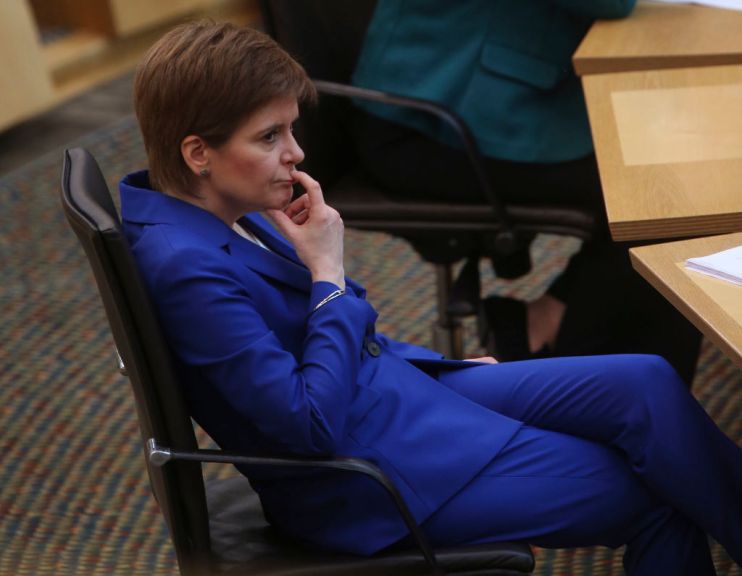Covid crisis has exposed the Scottish nationalists once again

In London, the Covid virus is disappearing rapidly. Hospital trusts are increasingly reporting days with no new cases at all.
During the crisis, there has been a proliferation of home-made signs in rural locations telling city dwellers, with varying degrees of politeness, to turn back and go home. Will we now see messages at junctions with the M25 saying “Yokels, keep out!”?
There is one thing which areas such as Cornwall have been very happy to let in. This is of course the huge subsidies which the regions receive from taxpayers in London and the South East.
Read more: Covid cases hit 6-week low
This is nowhere more so than Scotland.
Scottish regulations prevent you from travelling more than five miles from home. So English people are effectively banned from entering Scotland. But our money continues to flow across the border.
It is not just that Scotland receives its fair share of the fiscal surplus generated by London. It gets extra special amounts under the so-called Barnett formula, devised by the Labour government of the 1970s in a vain attempt to hold the SNP at bay.
The Covid crisis has ruthlessly exposed the emptiness of the nationalist case for independence.
Before the crisis, the Scottish government ran what was by some margin the largest fiscal deficit in the whole of Europe. Figures produced by the Government Expenditure and Revenue for Scotland showed the nation running a public sector deficit of 7 per cent of GDP.
In the 2014 referendum on Scottish independence, the SNP assumed that much of the gap could be filled by oil revenues. An average oil price of $120 a barrel was assumed, a figure which attracted disbelief at the time. Between 2015 and 2019 the actual average was less than half of this, at $57 a barrel.
During the recent crisis, the price has of course fallen still further, and it is hard to see it getting back even to $60 in a sustained way.
But the overwhelming question is: how would an independent Scotland have paid for the Covid crisis?
UK government borrowing in the month of April was easily the highest on record, at £62 billion. The Bank of England both issued debt and intensified the amounts spent on quantitative easing. So far, the market continue to have confidence, even though the Bank has, in crude terms, been printing large amounts of money
How would Scotland have met the massive increase in its already large fiscal deficit?
If the country were in the Euro, the European Central Bank would not allow it to print money. If it kept the pound, the same would apply to the Bank of England.
In the financial crisis, as banks such as the Royal Bank of Scotland collapsed, it was the English taxpayer who rescued Scotland.
As Marx said, history repeats itself first as tragedy then as farce. It is a tragedy that once again we have to bail Scotland out. It is a farce that we are not allowed into the country while we do this. Time to call it a day on subsidies for Scotland.
